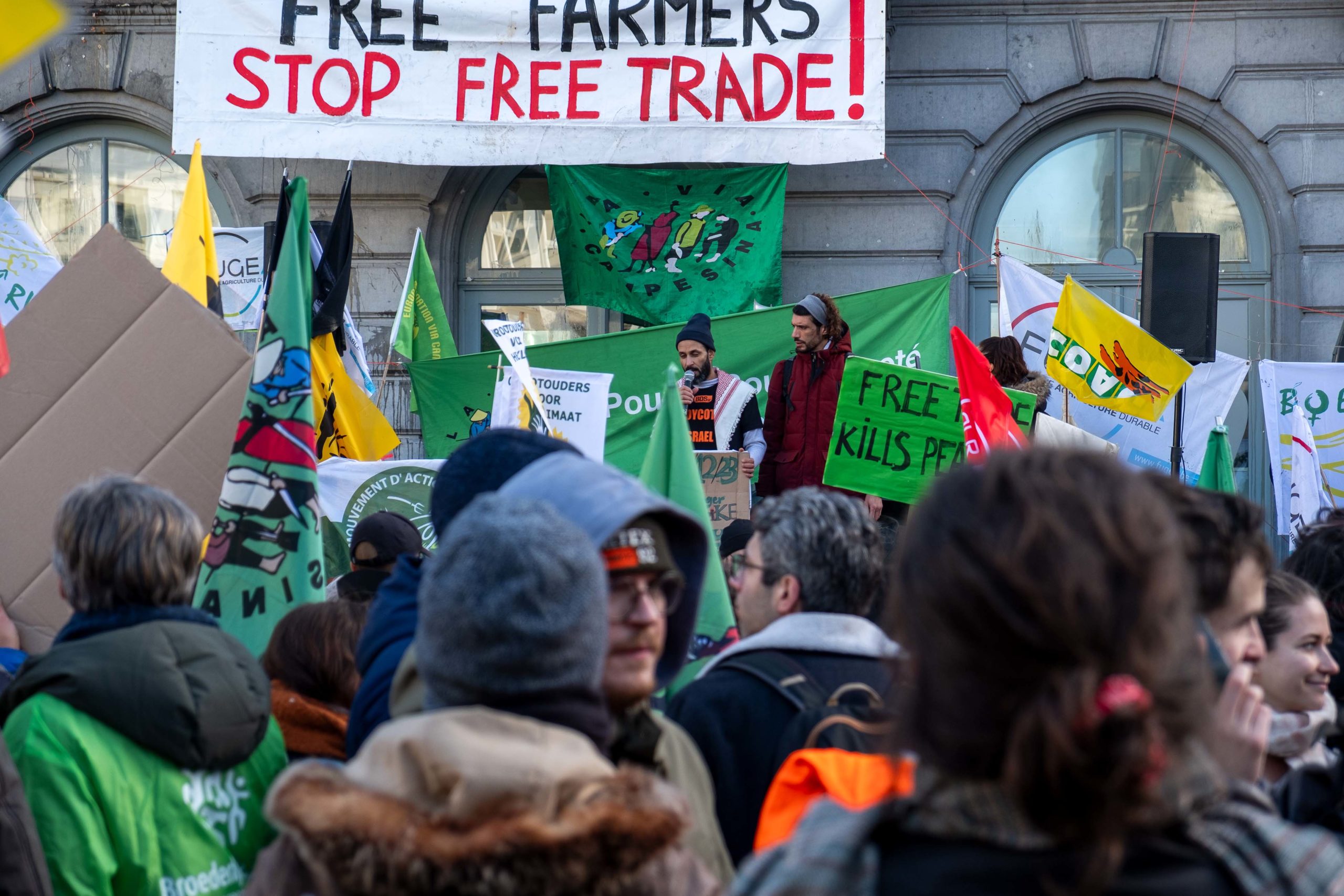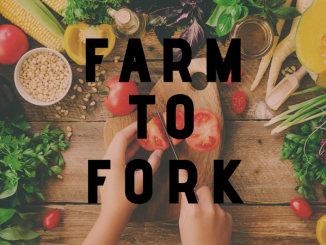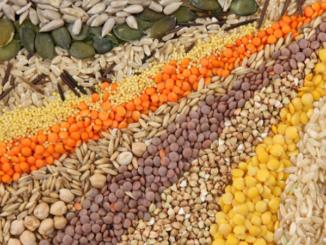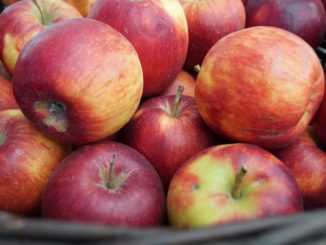
On Wednesday February 1, Tomaso Ferrando stood side-by-side with the farmers who had taken over Place Luxembourg and the streets adjacent to the European Parliament in Brussels. On my way, long lines of tractors with Belgian, French and Dutch plates could be seen almost a kilometre away from the square. As he drew closer to the scene, the sound of their horns and the smell of burned tires saturated my ears and nose. Here he outlines his thoughts on the farmers’ protests and what they mean.
Farmers’ multiple voices
As a legal scholar who had spent the past years researching how EU and international economic law may undermine attempts at building sustainable food systems, I was keen to join that day’s ‘farmers’ protest’. However, once I entered the square the idea that I was participating to such an event became much more nuanced and complex. Behind the uniformity of tractors, the square revealed itself as an assemblage of different identities, each one maintaining their specificity while contributing to the action’s visibility. From above, the square would have looked like a patchwork of blue, yellow, and green jackets, shot through with yellow balloons and splattered, here and there, with copious piles of manure. Green and yellow banners of left-wing unions and groups, along with Belgian and Flemish flags crying out their nationalist aspirations.
In truth, there were at least two squares in one. Close to the entrance, a banner cloaking the statue of English-born industrialist John Cockerill called on farmers to “Say no to despotism” and organize against environmental measures. Further down to the central garden, members of an Italian farmers’ confederation gave interviews on the need to liberalize New Genomic Technologies to boost productivity, and yet others discussed the limitations of animal welfare laws, while lining up to eat a sandwich with some grilled meat.
But there was also a second area that looked and sounded differently. Close to the Parliament fluttered flags of organic organisations such as La Via Campesina, La Confédération Paysanne and Boeren Forum alongside those of Extinction Rebellion and Grandparents for Climate. From the stage, speakers urged the public and policy-makers to address retailers’ power, market concentration, cheap prices and exploited labour.
Far from a mere matter of urban landscape, understanding the complexity of the struggles that day matters for politics. If we truly want to learn from what is happening and elaborate policy responses, it is essential we acknowledge that there was not one uniform square but rather diverging visions for the future likely stemming from the same structural weaknesses.
Farmers’ doppelgangers?
In her latest book Doppelganger, Naomi Klein suggests that the Covid-19 crisis and its associated state of uncertainty led to exceptional manifestation of care and solidarity, but also to an entrenchment into individualism, competitiveness, and fear of the other. Although incompatible, both responses arose from a common sense of isolation, dissatisfaction, frustration, and realisation that society – and its economy – had failed many of us. According to Klein, the two reactions act as each other doppelganger, but we tend to look at our ‘double’ (the other) as different or separate, to the point of mocking them. Rather than confronting and identifying the common origin of our condition, we fight. And this can only lead to further divergence and conflict that favours the far right.
And yet, we are not doomed to polarisation, Klein tells us. If we recognise the shared origin of apparently opposite responses, we can begin to create a common space of understanding and thus, in this case, to carve out a long-term vision for the EU food system, away from quick fixes such as watered down pesticide regulation or New Genomic Technologies. In Place Luxembourg, I believed I could trace back the common origin of farmers’ grievances to one slogan above all: “Free Farmers! Stop Free Trade!”.
‘Free Farmers! Stop Free Trade!’
Regardless of their political leanings, most farmers appeared to agree that a food system that treats food like any other tradable commodity was at the root of all ills. Hence the renaming of the Mercosur trade agreement: “cars for cow” deal. In agriculture, untrammelled free trade and the obsession with competitiveness have led to lower income, market concentration, dependency on powerful buyers, exploitation of nature, animals and labor, and land abandonment.
There are other reasons why the Covid pandemic mentioned by Klein may offer a useful blueprint for us to analyse the farmers’ crisis. At the outset of those months, farmers and food workers were recognized as essential and celebrated for their bravery and role in feeding Europe. In fact, essential often meant exploited, and they were highly exposed to the virus, to the fragility of the market and the lack of long-term strategies to consolidate their position and their livelihood. Time may have come to treat essential pillars of the our society in the way they deserve.
Tangible policies to overcome polarisation
If we want to overcome the current polarisation, it is key that we adopt policies that address the root causes of the problem. From 2020 to 2023, I led a research-action project FASS-Food EU , which brought together farmers, consumers, workers, environmental organizations and EU policy makers to unpack and improve the EU’s agri-food system. The aim was to collectively reflect on the regulatory and policy obstacles prevented the bloc from enjoying food chains that are Fair, Accessible, Sustainable and Short (FASS-Food).
The first lesson is that it is essential to recognise that it is not only farmers who are suffering, but the whole food system that lives in a state of permanent crisis and requires rapid transformation. How long can the EU accept a system that drives farmers suicides, food insecurity and unhealthy diets, environmental degradation, animal sufferance and precarious work conditions from farm to fork? The discussion around a Sustainable Food Systems Framework Legislation was a first attempt by the EU Commission to enrich the Common Agricultural Policy with a piece of legislation that would favour the sustainable transition of both production and consumption of food in the EU. However, following months of delays and frictions between different Directorate Generals, the proposal and the possibility of a systemic discussion around food systems lie forgotten in a drawer at DG-Sante. On the contrary, we are back to square one with a Strategic Dialogue on the Future of EU Agriculture that reinforces the separation between agriculture and food.
The research for FASS-Food project identified other starting points, some of which were mentioned on Place Luxembourg:
- Revising the 2019 Unfair Trading Practices Directive could give the EU and Member States the possibility of sanctioning large commercial players that purchase food at a price that does not guarantee living wage of farmers and workers.
- Via competition law, EU and national authorities can break up the trade and distribution oligopolies, while trade law can also be deployed to rethink existing trade agreements and the impact of global competitiveness on food systems both in Europe and among trading partners.
- Governments initiatives can help citizens to better feed themselves. Belgium’s Sécurité sociale de l’alimentation is one such example: drawing from fiscal revenues, public administrations issue food vouchers for citizens, which can be used to purchase food that respects social and environmental standards.
Whichever solutions we opt for, we will not find them in more of the same market dynamics or in another round of technological fixes. A vast toolbox exists, but unlocking it requires that we accept that food is not just like any another global commodity, with farmers’ protests just the tip of the iceberg.![]()
Tomaso Ferrando, Research Professor of Law, University of Antwerp This article is republished from The Conversation under a Creative Commons license. Read the original article.
More
Brussels Round up – Mirror Clauses, Mixed Messages & Farm to Facts
Farm to Forms – the Epicness of Trying to Establish and Run a Farm in France
Under Pressure Commission Grants CAP Derogation, Extends Ukraine Import Liberalisation
Echoes of Discontent: Understanding the European Farmers’ Protests




